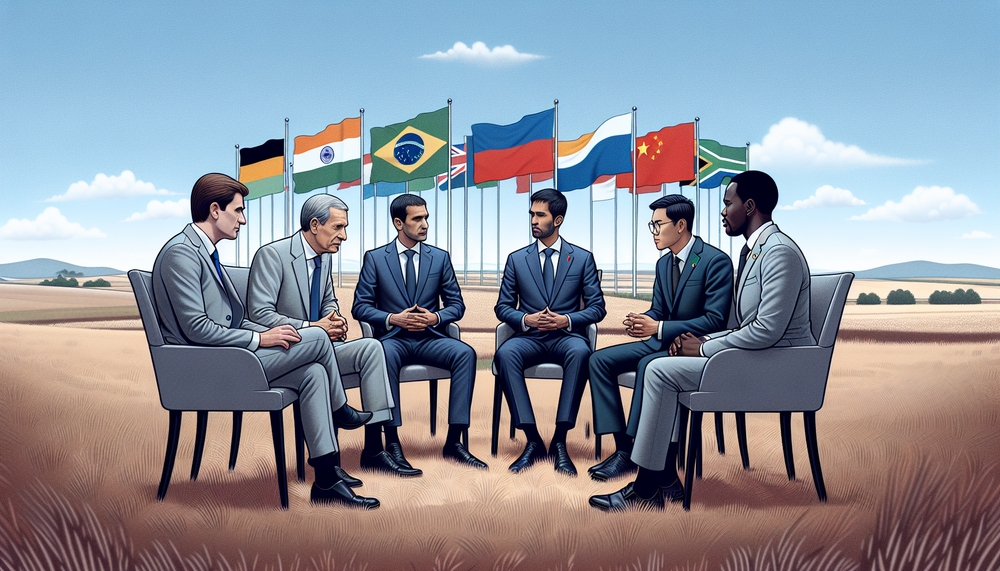Published
- 3 min read
Navigating New Horizons: BRICS and the Path Forward

The Evolution of BRICS
BRICS, an assemblage of emerging economies integrating Brazil, Russia, India, China, and South Africa, has undergone substantial growth since its conception. Initially recognized as BRIC in 2001, this coalition expanded to include South Africa in 2010, reformulating its identity to encompass continent-wide representation. The alliance marked notable advancements with the formation of the New Development Bank (NDB) in 2014, intended to bolster development funding across member countries. However, BRICS has historically encountered hurdles in imposing significant reformations within global governance structures, often stymied by disparate political orientations and global adversities.
Recent Expansion and Strategic Inclusivity
In a bid to fortify its global standing, BRICS recently welcomed six new countries and established ten partnership alignments during its latest summit. This strategic growth is seen as a step towards enhancing its global influence and promoting a balanced geopolitical landscape. By embracing nations from diverse regions, BRICS now garners a broader international presence, envisaging an amplification in its sway over global economic and political dynamics. Such inclusivity not only diversifies BRICS’ membership but strategically positions it to redefine its role within the global geopolitical sphere.
BRICS’ Economic Influence and Resource Power
BRICS stands as a formidable economic powerhouse, contributing significantly to global GDP and trade. Collectively, these economies account for nearly a quarter of the world GDP and an increasingly substantial chunk of international trade flows. The bloc’s economic prowess is further magnified by its resource-rich member states, particularly those abundant in energy reserves like Russia and Brazil. This wealth of resources endows BRICS with substantial clout over global markets, promising profound influence in shaping future economic landscapes, though not without the potential for geopolitical challenges amid differing national policies and global market dependencies.
Development of Alternative Payment Mechanisms
Amidst global economic shifts, BRICS has been contemplating the implementation of alternative payment systems, advocating for transactions in national currencies rather than depending predominantly on the US dollar. India has championed this pragmatic discourse, aiming to strike a balance that retains engagement with Western economies while advancing sovereign economic modalities. This initiative aims to solidify BRICS’ economic resilience, circumventing undue dependency on established Western financial systems and positioning itself as a self-reliant economic alliance.
New Development Bank and Financial Growth
The New Development Bank, a pivotal BRICS venture, symbolizes the group’s collaborative financial ambitions. With plans to expand its capital reserve and potentially integrate countries like Saudi Arabia, the NDB is poised to amplify its developmental impact. Not only does this growth align with BRICS’ strategic economic objectives, but it also signifies a paradigm shift toward richer financial resource mobilization. As the NDB bolsters its financial capabilities, it stands to solidify BRICS’ economic framework, fostering sustainable development across its member states.
Perspective from Key Members: India and Brazil
India and Brazil, integral constituents of BRICS, offer distinctive perspectives within the group. India leverages BRICS as a formant to advocate for a non-Western worldview while intensifying efforts to combat international terrorism. Meanwhile, Brazil, currently at the helm, foresees refining global governance and propelling sustainable development initiatives. These nations’ concerted strategies and influential narratives underscore their vital roles in steering BRICS toward realizing shared aspirations within the global arena.
Geopolitical Challenges and Leadership at the Rio Summit
Despite the absence of key leaders, such as President Xi Jinping, at the recent Rio Summit, BRICS faces ongoing geopolitical hurdles that may impede cohesive policy resolutions. Nonetheless, the onus now lies on the remaining nations, notably Brazil, India, and South Africa, to navigate these challenges. As prominent leaders within BRICS, their decisive leadership seeks to sustain momentum, promote unified strategies, and ensure coherent policy implementation throughout burgeoning geopolitical vicissitudes. Their stewardship will be crucial in sustaining BRICS’ coherence amid the evolving global landscape.
